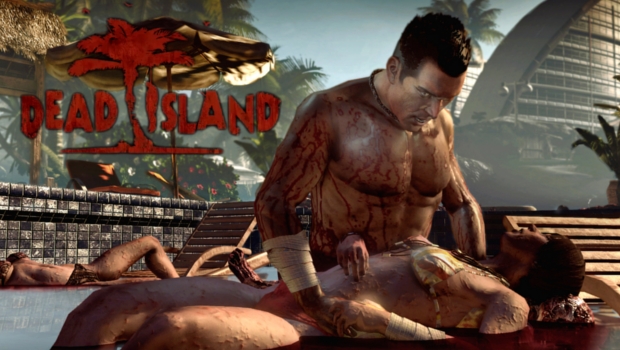Beware the Buzz: A Techpedition PSA
Pre-release buzz, its an interesting concept. Its something that PR teams and advertising executives try to build early. Things like E3, Gamescom and TGS are centered around being a venue for games to make their presence known and to build fan and industry awareness. Trailers, interviews and game play footage trickle out as it gets closer to release date. Each piece of content is carefully angled to reveal exactly what they want you to see, and to show the game in the best light possible. It sounds dirty, but you can’t really blame them for it. One video with a choppy frame rate or a crashing demo can be the focus of any journalist’s negative comments. These comments could sway a fickle “gamer’s” buying patterns and everyone knows what that means, less money.
The PR/marketing team’s job in any medium is to take the art and turn it into money. Sure its easier when the art is good and speaks for itself. Games like Uncharted 3, Batman: Arkham City or Zelda: Skyward Sword are probably pretty easy to market. There’s a built in audience that is hungry for content. It would be a genuine surprise if any of those games sucked. What truly tests a PR teams spinning chops is when a game isn’t great and they are tasked with building hype. Games like Homefront, Duke Nukem Forever, Too Human, or Star Wars: The Force Unleashed are all examples of games that had sizable amounts of pre-release attention. They were marketed extremely well and had legions of “fans” in place before the games were even on the shelves.
In Homefront’s case the game became the most pre-ordered title in the history of THQ’s catalog (a catalog that includes franchises such as Red Faction, Saints Row, Warhammer 40,000, WWE, and UFC). They convinced thousands of people to give them money with zero proof that the game was decent. As we know, Homefront was a glorious disappointment. So much so, that the developer, Kaos, was closed 3 months after Homefront’s release. THQ has done their best to do damage control by releasing sales figures and compared its Metascores to similar games and performances, but they clearly cannot be happy with the final product.
Why is it that games can be released with a a low Metascore and still do well? The answer is, tempered expectations. Logic dictates that to sell the most copies you want your game’s name to be on the tips of everyone’s collective tongue. You’re not going to move units if no one knows you exist. On the other end, you don’t want the exposure to be too heavy. Star Wars: The Force Unleashed had the full Lucas Arts marketing money behind it, and with a decent demo that highlighted the best parts of the game, both fans of Star Wars and action games were nearly salivating to play it. While it sold well, the critical and public reception was lukewarm at best. This tainted the overall opinion of the franchise and despite it yielding a sequel, no one can take a new Force Unleashed game too seriously. If we look at a different game that had about the same reception, like Just Cause (both of them have a 73 Metascore), and look at its marketing strategy, you’ll see that Eidos didn’t break the bank getting their Swedish developed open world game to market.
Rather than leaving a bad taste in the mouth of the fans whose expectations had been built to an almost impossibly high level, Just Cause was seen for what it was, a developer’s “first try”. It wasn’t amazing, but it was better than expected and performed well enough to warrant a sequel. That sequel, Just Cause 2, was a much better received game and ended up doing really well for Eidos and Square Enix. With this in mind, I would say that a marketing team’s job is less to promote the game, than it is to set the expectation for the game. In most cases, good games will do well, no matter the marketing push (hell, look at Minecraft). Sure there are exceptions (Pyschonauts, or Enslaved etc.), but gamers can be capricious and mouthy creatures. If they don’t like something, they will let it be known. Repeatedly pounding a game into their heads will only give them more of a reason to turn on it, quickly (I call this Nickelback syndrome).
Newer unproven games like Rage, Dead Island, Spec Ops: The Line and even the upcoming XCOM reboot are all experiencing different levels of hype and quality speculation. I simply don’t understand the hype behind Dead Island. It just came out and it looks like its doing ok, but for a new franchise to have a midnight release at a local Gamestop is a sign that PR did absolutely everything to get people into stores on day one. Its is a new franchise from a developer whose last game (Call of Juarez: The Cartel) tanked…badly! . Best case scenario, Dead Island is awesome and all the day-one purchasers become ambassadors for the game, driving others to purchase it. Worst case scenario, the game is terrible, and Deep Silver hopes players don’t figure it out before a massive amount of copies fly off the shelves.
In conclusion (I really hate writing that, but I gotta wrap this up), all I’m saying is to take pre-release exposure with a grain of salt. Someone is always behind the scenes getting paid to make sure everything you are seeing is awesome. Whether it be screenshots that highlight the explosiveness of their barrels or a Youtube trailer that curiously doesn’t contain any actual game footage, you are seeing it because someone has deemed it good enough to be seen. That game may end up being awesome, but the pre-release media doesn’t prove it. There goes my chance of ever being hired by a publisher as a PR specialist.





